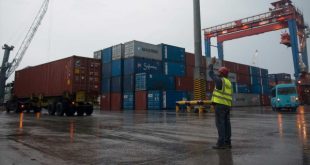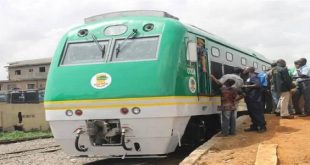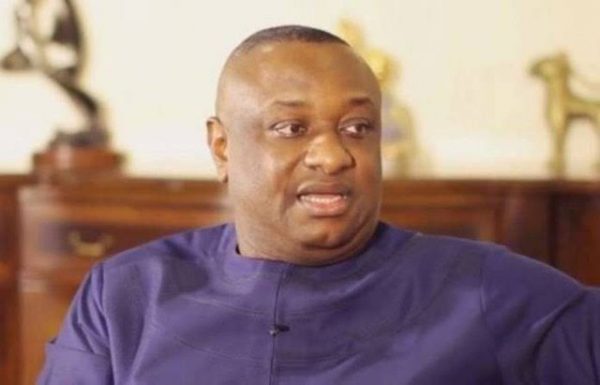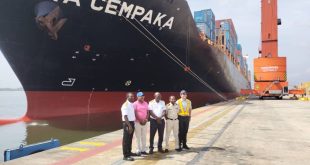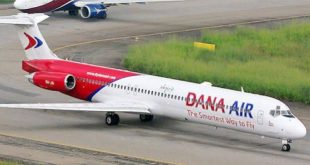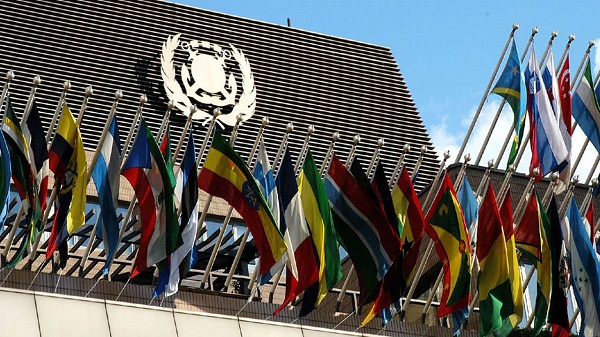
· Maritime sector lags behind in technical issues, infrastructure – Ilori
· Nigeria hasn’t ratified essential IMO conventions – Folarin

· Work on being relevant, tackle piracy – IMO source
By Kenneth Jukpor & Yusuf Odejobi
As the International Maritime Organization (IMO) concludes plans to increase the membership of its governing council from 40 to 52, Nigeria’s bid to get into the Council could be sealed using subtle diplomacy via the Ministry of Foreign Affairs through the High Commission deliberations.

The approvals were made at the 33rd extraordinary session of the Council, which was held virtually on April 8th, 2021 and the amendments will be transmitted to the 32nd session of the IMO Assembly, to be held from 6 to 15 December 2021, for consideration with a view to adoption.

Upon entry into force of these proposed Council reforms by the Assembly, the IMO Council will increase by 12 Member States and the expansion of the IMO Council would see 12 seats allocated to Categories (a) and (b) each and 28 seats to Category (c).
Since most IMO member states have offices in London and the Nigerian High Commission is linked with them through frequent meetings, the nation might be successful with international politicking and agreements for mutual benefits that could see Nigeria elected during the polls later this year.
This approach would also lessen the economic burden of foreign travel and other expenses accruable if the Ministry of Transportation and the Nigerian Maritime Administration and Safety Agency (NIMASA) undertake the journey to meet and lobby other IMO member states.
A maritime expert and former Pioneer Alternate Permanent Representative of Nigeria to the International Maritime Organization (IMO), London, Engr. Olu Akinsoji made this assertion during an exclusive chat with MMS Plus last week.
While there could be a strategic role to return Nigeria to the IMO Council, there are also doubts that the nation has attained necessary requirements to earn a spot in the Governing Council of the world’s apex maritime regulatory body.
Speaking with MMS Plus, Akinsoji said: “Almost all IMO member states have offices in London and the Nigerian High Commission is linked with them because they all attend meetings. The Foreign Affairs should look at the issues that make Nigeria relate with other IMO member states to see where we have indebtedness from them. Subsequently, the High Commission could use its diplomatic powers to approach some of these member states to discuss bilateral and mutual benefits.”
According to him, it is more comfortable for the High Commission and its colleagues to discuss substantial issues of mutual benefit on this level, than an approach where a group of people will approach IMO member nations to solicit votes.
“Instead of wasting humungous sums on these travel expenses and engagements that remain futile, let the Foreign Affairs explore areas of mutual benefits with member states and direct the High Commission to deal with the matter with some references,” he said.
He also admonished the Ministry of Transportation and NIMASA look at Nigeria’s relationship with other countries in the region.
“IMO set up a regional outfit some years ago and Nigeria was a party to it. What has Nigeria done to contribute to this IMO regional outfit? Nigeria will be the greatest beneficiary if this regional initiative works because the nation is the most affected when you study the effects of the Gulf of Guinea (GoG) crisis. GoG is the hotspot for banditry, piracy and maritime crimes around the world. If Nigeria can do all these in due time and in a concrete manner; the tangible results of our actions will spur IMO members to vote for Nigeria. These members are not dumb; they know what is going on. If approaching Nigeria’s coast is dreaded by seafarers; then that’s not the best. This is the impression the world has about Nigeria’s maritime administration,” he added.
Meanwhile, an IMO source has told MMS Plus that Nigeria’s biggest challenge is the menace of piracy, adding that the nation isn’t perceived as a serious maritime country with queries on the governance structures of maritime agencies, influence of politics in appointing heads of crucial agencies instead of experience and skills, among other issues.
The IMO source who preferred anonymity, posited that Nigeria always takes its focus away from crucial maritime issues until it’s too late to influence the decisions of member states at the polls.
While concurring with Akinsoji’s views that diplomatic efforts could be gainfully deployed using the Ministry of Foreign Affairs, the source noted that instances where Nigeria moves to America with 10 to 15 people to lobby for elections have been perceived by the hosts as a waste.
“Nigeria is spending so much to lobby for elections when it is collecting loans for various aspects of developing its maritime sector. Foreigners enjoy the receptions and grandeur by local entertainers but won’t vote based on that. If you share Nigeria’s budget with the IMO member states, they still wouldn’t vote for Nigeria because it is an election based on technical competence. The voting decision would have been taken one year before the elections and this decision is formed by the Ministry of Transportation and its Foreign Affairs Ministry. Besides this, there are some salient questions Nigeria really needs to answer. Does the nation need to be on the IMO Council to be effective? Ghana hasn’t bothered to contest over the years because it is more concerned about fixing several aspects of the maritime sector. What does Nigeria gain or lose with a place on the IMO Council? Are there events within the country or around that hampers Nigeria’s chances?” the IMO source quizzed.
The IMO source, however, stressed that the visibility and sensible contributions of a country’s representative also influences other member state’s vote for the country during the polls.
Also speaking with our correspondent, the Chairman, Nigerian Ports Consultative Council (PCC) Otunba Kunle Folarin stressed that Nigeria needs to qualify for the position before contending.
Describing the race for IMO Council seat as survival of the fittest, Folarin said, “Nigeria needs to prove beyond reasonable doubt that it is a maritime nation and to prove that, there’s a need to put forward the instruments, capacity, manpower component and particularly infrastructure. On infrastructure, do we have an operational port system that can compete with others favorably anywhere in the world or in the West African region? Do Nigerian ports have artillery service to handle issues of distress or competency on issues like dockyard and ship repair yard? Is there availability of communication gadgets that can respond to the needs of international ships in case of distress and attack by pirates and others?”
The PCC boss also asserted that joining the IMO Council requires a total complement of capability and infrastructure.
“The election is in December and we’re in May already, it’s important to put things in order by providing the infrastructure, superior services and operations to make Nigeria capable and compete favorably with other nations vying for the same position. Don’t forget the seat is just one for the West African region so a lot of countries will compete for it. So, it’s about the question I asked earlier on competence, capability and competition. If Nigeria is not capable in those three areas then we should forget the position,” he said.
He, however, expressed optimism that the Deep Blue Project which has been commended by the international community should be considered as part of infrastructural improvements by the nation to address piracy.
“The Deep Blue Project incorporates a lot of things that are relevant and irrelevant to IMO standards. The project contains industrial, commercial, international, operational etc but not all are relevant to IMO Council election requirements. Responding to IMO’s convention is part of the requirements but how many conventions have Nigeria ratified? How many have we domesticated in the National Assembly? How many of them are in our books? If we say we’re a member of IMO, then we must comply with set laws. There are so many conventions Nigeria hasn’t domesticated. An example is the Maritime Labour Convention, 2006 (MLC) passed by International Labour Organization (ILO), endorsed by IMO and ratified by Nigeria under ex-President Goodluck Jonathan, it has not been passed into law up till today,” Folarin queried.
On his part, the Chief Executive Officer of Ocean Pearls Limited, Engr. Emmanuel Ilori stressed that the political or the lobbying part of the IMO Council bid isn’t more important than the technical part of it.
His words: “The question is, what is Nigeria going to lobby with? If we’re going to lobby other nations, what do we bring to the table? We need to think seriously of what we’re going to be lobbying with because the narrative that Nigeria is a regional superpower is stale and other nations are seriously challenging for that position.”
Ilori, who is also Vice President of the Association of Marine Engineers and Surveyors (AMES), noted that Nigeria could be strong on the issue of regional representation and try to balance the global representation but other nations could also rightly challenge for that regional balance.
On the technical aspect, however, he identified two key issues of interest in maritime transport which are navigation and food security.
Meanwhile, he wondered how much special interest in maritime transportation the nation has demonstrated in the area of navigation and food security.
“Do we have the potential to transport oil or cargoes on water? Is that really our strong point? What is the quality of our fleet? What is the quality of our national flag? What is the quality of our ship registry? What is our track record, in terms of the number of our vessels and the quality of the vessels of this special interest? The last time Nigeria went into the IMO Council, the nation was able to demonstrate that potential with the NLNG fleet but the fleet never translated to Nigerian flag. IMO took our word for it but unfortunately that hasn’t transpired after more than 10 years,” he queried.
On the aspect of food security which falls under maritime transport, he noted that although Nigerians go to the oceans to fish with ocean trawlers and vessels, the nation doesn’t really have a strong grip of that aspect of maritime.
“Let’s talk about security, how have we been able to demonstrate that we’re involved in curbing piracy in GoG? The Deep Blue Project and the anti-piracy law might boost the nation as one of the pioneers in making laws that punish sea robbery and maritime piracy, but the global community still sees the GoG as a challenge. So, that will be a plus or minus for us depending on how we handle it,” he said.
While acknowledging that the nation could start lobbying, he admonished the country to realize the strength of other nations in key areas who have continued developing and showing the world that they are relevant in the global maritime domain.
“Don’t forget that there are technical alliances formed globally. In terms of some of the key issues that affect the maritime industry. Does Nigeria have any technical alliance that we can be demonstrating that don’t forget when you’re lobbying these technical alliances becomes little strength that can identify with you, back you up and give you the votes required. So it’s my desire and prayer that Nigeria gets into the Council but we still need a lot of work before we can say that our maritime industry can compete on a global level or can contribute meaningfully to the global discussion, because maritime is technical as much as it’s economical,” Ilori stressed.
 MMS PLUS NG – Maritime, Aviation, Business, Oil and Gas News Online Newspaper with coverage in Maritime, Oil and Gas, Aviation, Power and Energy as well as Financial News
MMS PLUS NG – Maritime, Aviation, Business, Oil and Gas News Online Newspaper with coverage in Maritime, Oil and Gas, Aviation, Power and Energy as well as Financial News



